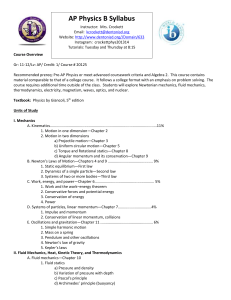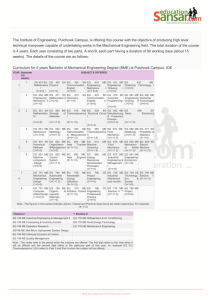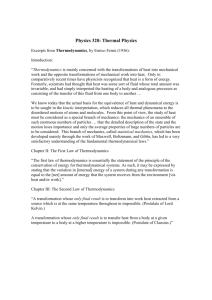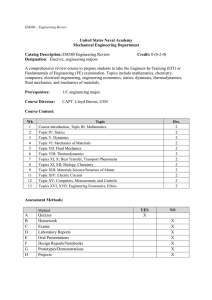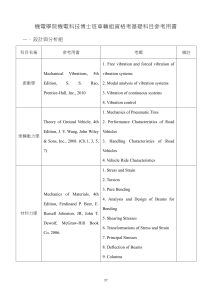MODULE DESCRIPTOR Code: Alt Codes: Title:
advertisement
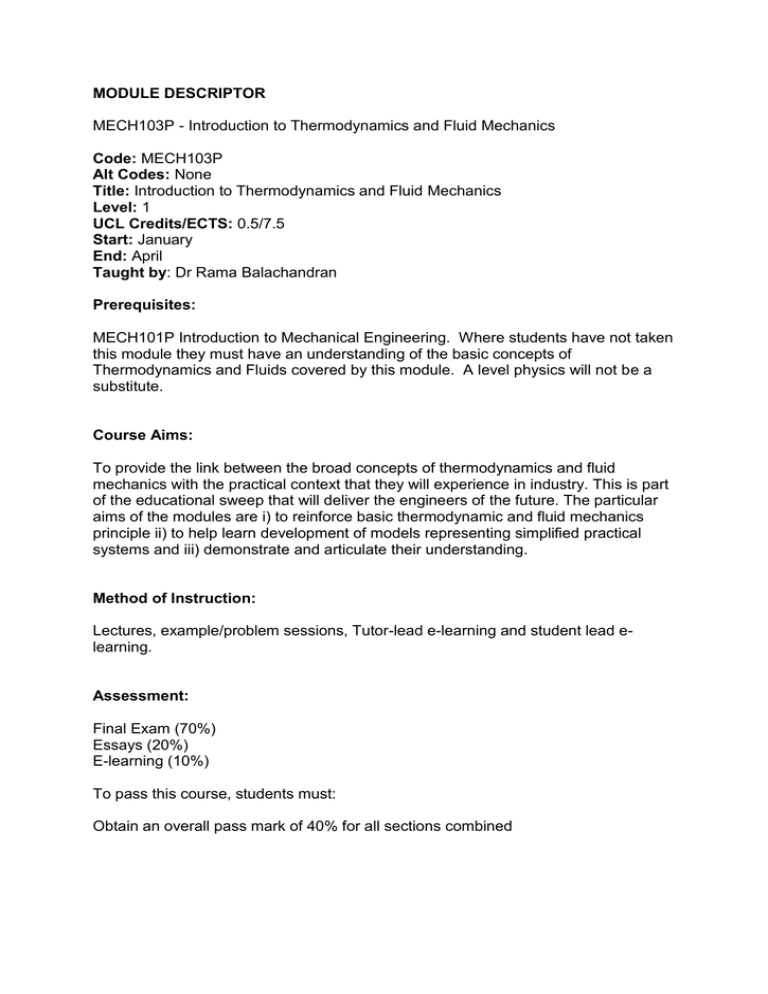
MODULE DESCRIPTOR MECH103P - Introduction to Thermodynamics and Fluid Mechanics Code: MECH103P Alt Codes: None Title: Introduction to Thermodynamics and Fluid Mechanics Level: 1 UCL Credits/ECTS: 0.5/7.5 Start: January End: April Taught by: Dr Rama Balachandran Prerequisites: MECH101P Introduction to Mechanical Engineering. Where students have not taken this module they must have an understanding of the basic concepts of Thermodynamics and Fluids covered by this module. A level physics will not be a substitute. Course Aims: To provide the link between the broad concepts of thermodynamics and fluid mechanics with the practical context that they will experience in industry. This is part of the educational sweep that will deliver the engineers of the future. The particular aims of the modules are i) to reinforce basic thermodynamic and fluid mechanics principle ii) to help learn development of models representing simplified practical systems and iii) demonstrate and articulate their understanding. Method of Instruction: Lectures, example/problem sessions, Tutor-lead e-learning and student lead elearning. Assessment: Final Exam (70%) Essays (20%) E-learning (10%) To pass this course, students must: Obtain an overall pass mark of 40% for all sections combined Content: The course consists of two thematic and overlapping areas – thermodynamics and fluid mechanics and will build on the basics and introductory material covered in MECH101P Introduction to Mechanical Engineering. The topics that will be taught include: Thermodynamics: 1) Application of first law of thermodynamics 2) Pure substance, real and perfect gases 3) Second law of thermodynamics 4) Reversibility 5) Entropy 6) Introduce: air standard gas power cycles, refrigeration and steam cycles. Fluid Mechanics: 1) Importance of Fluid mechanics 2) Methodologies of studying fluid mechanics 3) Characterisation of fluid 4) Dimensional analysis: examples and power behind the methodology 5) Statics 6) Kinematics 7) Dynamics 8) Integral vs Differential form of momentum equation. General Learning Outcomes: Knowledge and Understanding Upon completion of this module students should be able to: Demonstrate knowledge and understanding of the essential facts, concepts, theories and principles underlying Thermodynamics and Fluid Mechanics Have an appreciation of the wider multidisciplinary context of the underlying theory, including its applications to engineering design and application to real world problems. Skills and attributes Upon completion of this module students should be able to: Ability to apply appropriate quantitative science, engineering and mathematical tools to the analysis of problems arising in Thermodynamics and Fluid Mechanics
